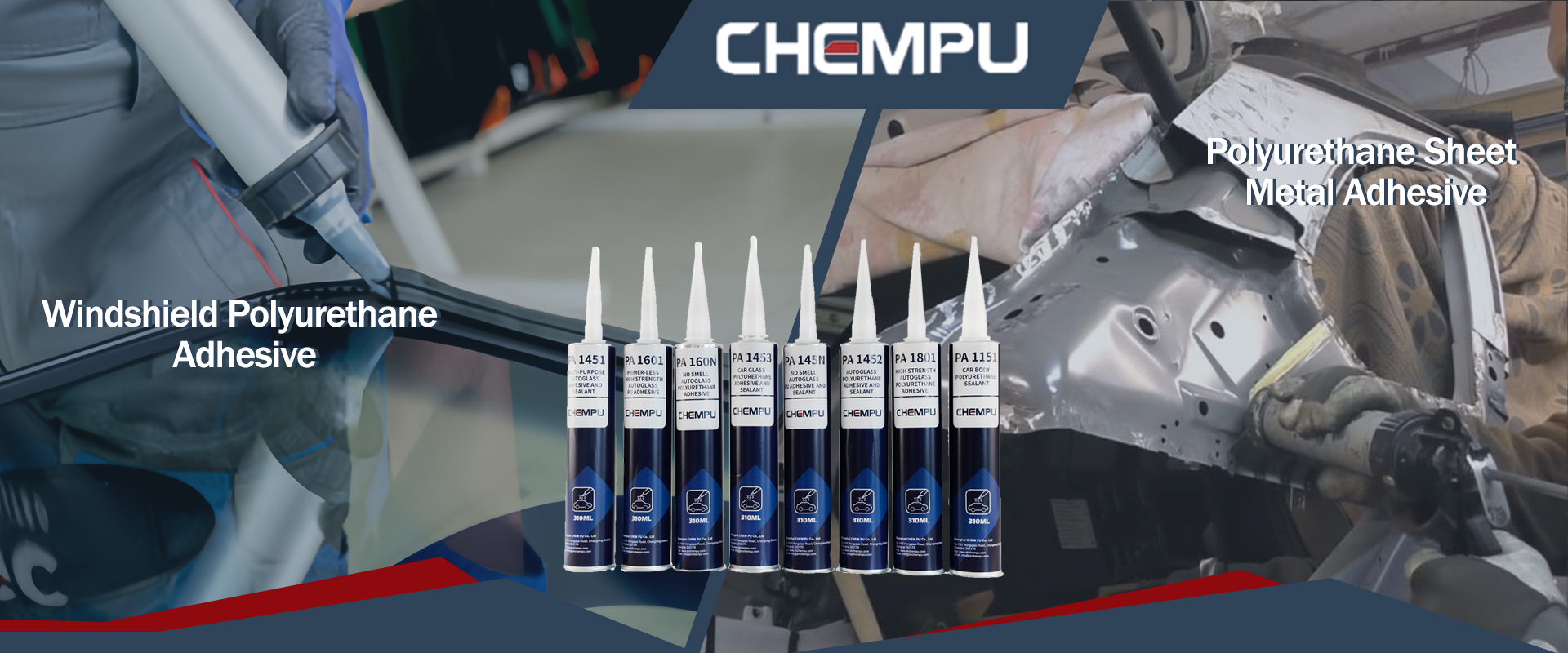Keywords: Polyurethane Sealant, Windshield Polyurethane Sealant
Polyurethane sealants are highly versatile and durable materials widely used across various industries for bonding and sealing applications. These sealants provide exceptional strength, flexibility, and weather resistance, making them ideal for both interior and exterior projects. One of the most specialized uses is in windshield polyurethane sealant, a crucial component in the automotive industry.
1. What is Polyurethane Sealant?
Polyurethane sealant is a type of sealant made from polymers that create strong, elastic bonds between different surfaces. It is renowned for its ability to bond to a wide range of materials, including metal, wood, glass, plastic, and concrete. This makes it one of the most widely used sealants in construction, manufacturing, and automotive applications.
Unlike some other sealants, polyurethane remains flexible after curing, which allows it to withstand material expansion, contraction, and movement due to temperature changes or external forces.
2. Key Features of Polyurethane Sealant
Polyurethane sealants stand out because of their unique properties:
- High Adhesion: It creates a strong bond between various materials, ensuring long-term durability.
- Flexibility: Even after curing, polyurethane sealants maintain flexibility, allowing the materials to expand and contract without causing cracks or breaks in the seal.
- Weather Resistance: They provide excellent resistance to environmental factors like UV rays, moisture, and extreme temperatures.
- Abrasion Resistance: Due to their toughness, polyurethane sealants can withstand harsh environments and mechanical wear, making them ideal for both indoor and outdoor applications.
3. Applications of Polyurethane Sealants
Polyurethane sealants have many applications across different industries:
- Construction: They are commonly used for sealing joints in concrete, wood, and metal structures, providing long-lasting protection against water and air leaks. Polyurethane sealants are often applied in roofing, window installations, and flooring projects.
- Automotive: In the automotive industry, windshield polyurethane sealant is essential for securing windshields and windows. The sealant not only bonds the glass to the car’s body but also ensures a watertight and airtight seal to keep out moisture and debris. Additionally, it helps maintain the structural integrity of the vehicle by providing support in the event of a collision.
- Woodworking and Carpentry: Polyurethane sealants are excellent for bonding wood to other materials such as metal or glass. They are used in cabinet making, furniture manufacturing, and other woodworking projects to create strong, flexible seals.
- Marine and Industrial Uses: Polyurethane sealants are used in harsh environments such as marine applications, where they resist saltwater, and in industrial settings that involve heavy machinery, providing protection against vibration and corrosion.
4. Windshield Polyurethane Sealant: A Specialized Application
One of the most critical uses of polyurethane sealants is in the automotive industry for securing windshields. Windshield polyurethane sealant plays a vital role in ensuring the safety and integrity of a vehicle.
- Strong Adhesion: It bonds the windshield securely to the car frame, preventing it from dislodging during impact or a collision.
- Weatherproofing: Polyurethane creates a tight seal around the windshield, ensuring that water, dust, and air do not enter the vehicle. This seal is essential for keeping the car’s interior dry and reducing noise from wind and road conditions.
- Structural Support: In case of a car accident, the windshield provides structural support to the roof of the car. A securely sealed windshield using polyurethane can prevent the roof from collapsing in a rollover.
- Flexibility: The flexibility of the polyurethane allows it to absorb vibrations and movements from the road without compromising the seal or bond strength.
5. Benefits of Using Polyurethane Sealants
Polyurethane sealants offer several advantages over other sealants:
- Durability: Polyurethane forms a lasting bond that can endure heavy stress and environmental exposure.
- Compatibility with Various Materials: Whether you’re working with glass, metal, plastic, or wood, polyurethane is versatile enough to bond these materials effectively.
- Ease of Application: It can be applied easily with a caulking gun and requires minimal preparation of the surfaces.
- Fast Curing: In many cases, polyurethane sealants cure quickly, allowing the project to be completed faster.
6. How to Choose the Right Polyurethane Sealant
When selecting a polyurethane sealant, consider the following factors:
- Material Compatibility: Ensure the sealant is compatible with the materials you are joining, such as windshield polyurethane sealant for bonding glass and metal.
- Curing Time: Some projects may require a fast-curing sealant, especially in construction or automotive repair where time is critical.
- Flexibility Requirements: Depending on the application, such as joining materials that are likely to experience movement (like wood and metal), you may need a highly flexible polyurethane sealant.
Conclusion
Polyurethane sealant is a powerful bonding agent that is highly valued in industries ranging from construction to automotive. Its flexibility, weather resistance, and strong adhesion make it a go-to solution for projects that require durable, long-lasting seals. In the automotive world, windshield polyurethane sealant is indispensable, not only providing a secure bond for vehicle glass but also enhancing the structural safety of the vehicle.
Whether you’re working on large-scale construction projects or replacing a car’s windshield, choosing the right polyurethane sealant ensures a reliable and lasting result that can withstand environmental challenges and daily wear and tear.
Post time: Sep-27-2024

